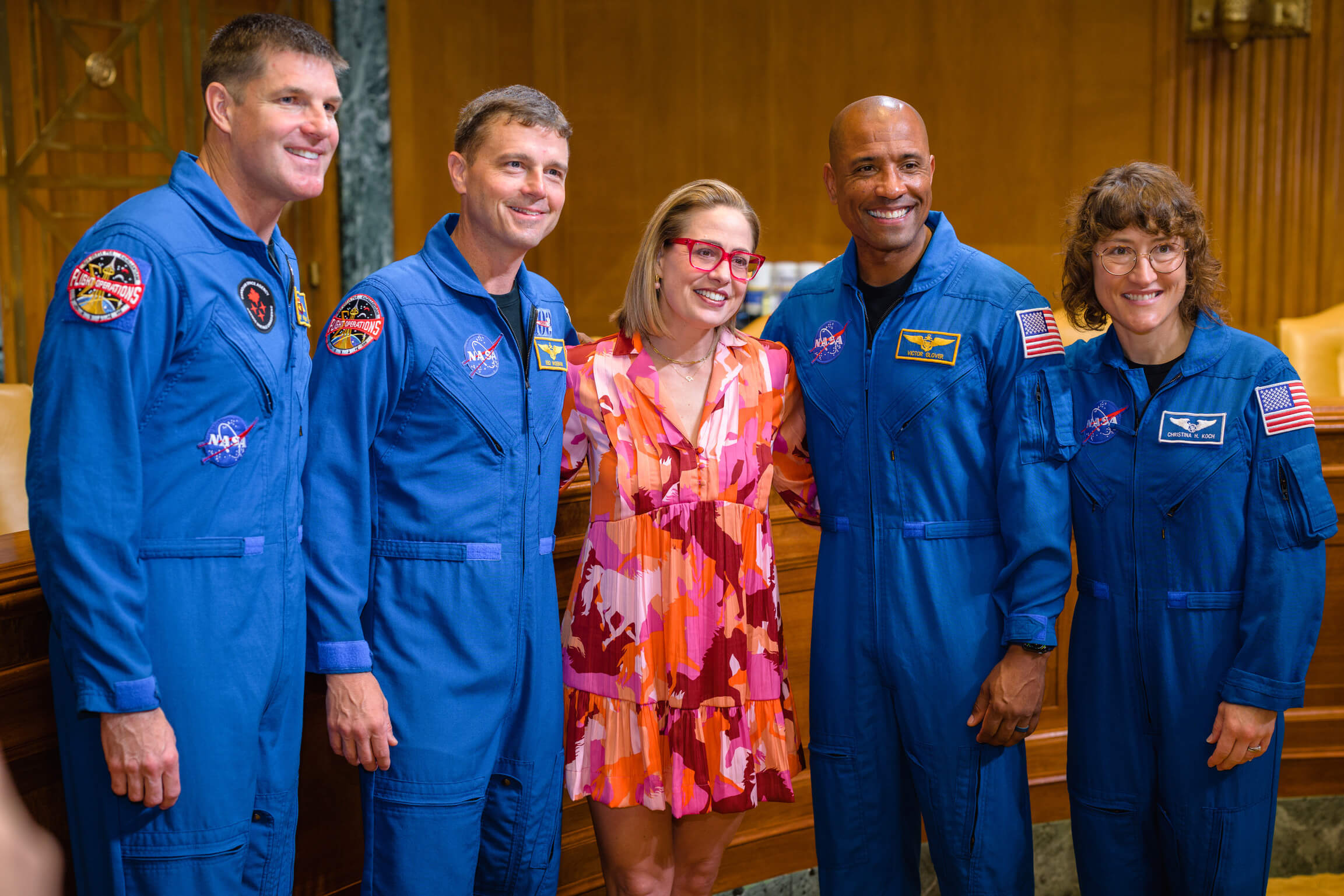Artemis II will be the first crewed moon mission in five decades
WASHINGTON – Arizona senior Senator Kyrsten Sinema – Chair of the Space and Science Subcommittee – met with the National Aeronautics and Space Administration (NASA) Artemis II Astronaut crew to discuss their 2024 moon mission, ensuring the highest levels of aerospace safety and innovation, and Arizona’s leadership in space exploration.
“Artemis II will launch our nation to new heights of space research and exploration. I’m honored to meet this exceptional crew making history and leading us to the future,” said Sinema, Chair of the Senate Space and Science Subcommittee.
Expected to launch in November 2024, Artemis II is the second scheduled mission of NASA’s Artemis program and the first crewed moon mission in five decades. The crew consists of four Astronauts – Commander Reid Wiseman, Pilot Victor Glover, Mission Specialist Christina Hammock Koch, and Mission Specialist Jeremy Hansen.
Sinema was instrumental in ensuring the bipartisan Chips and Science law – legislation she led boosting semiconductor manufacturing, reducing reliance on foreign countries, and enhancing the United States’ global competitiveness – reauthorized NASA. Specifically, Sinema incorporated provisions she wrote as a leader on the Space subcommittee directing NASA to fund key science research at Arizona universities, maintaining the International Space Station, and sending the first woman and person of color to the moon.
Sinema recently chaired a Senate hearing highlighting Arizona’s national leadership in space research and exploration with NASA Administrator Bill Nelson and urged him to prioritize Arizona space missions.
In March, Sinema also met with NASA Administrator Nelson to discuss Arizona priorities on space research, exploration, and engineering in the 118th Congress. The month prior Sinema introduced the ORBITS Act – legislation improving national security, supporting communications reliability, and protecting American astronauts by directing NASA to publish a list of space debris that poses a risk.
###

